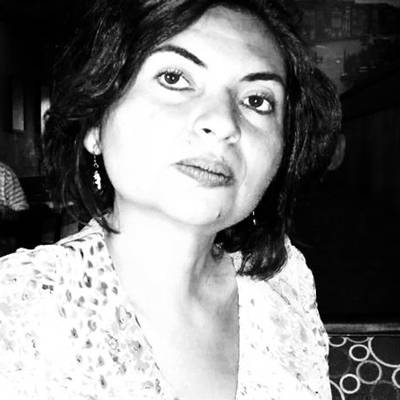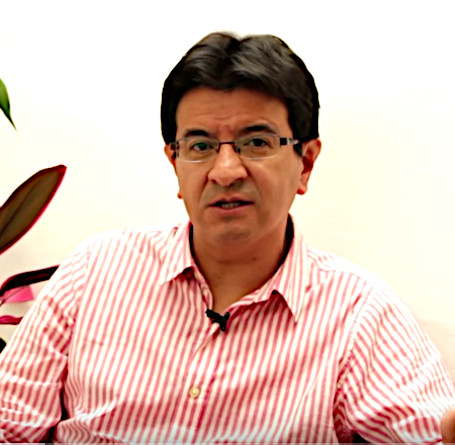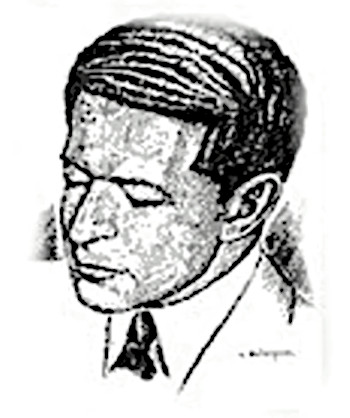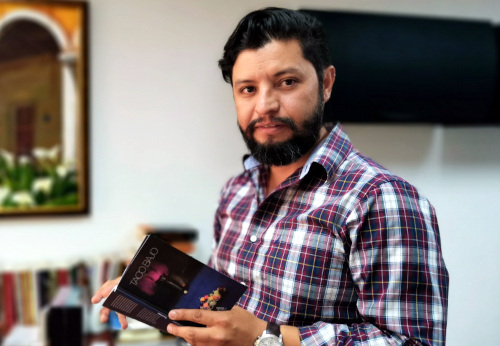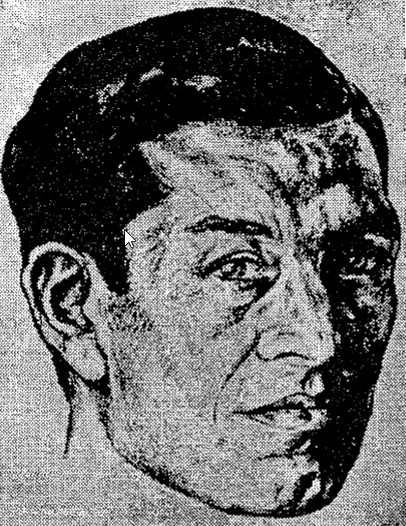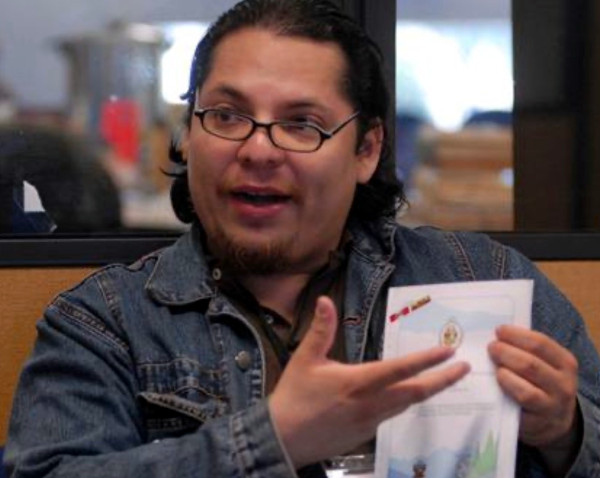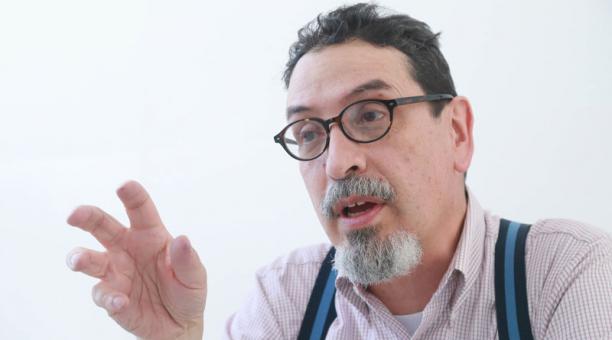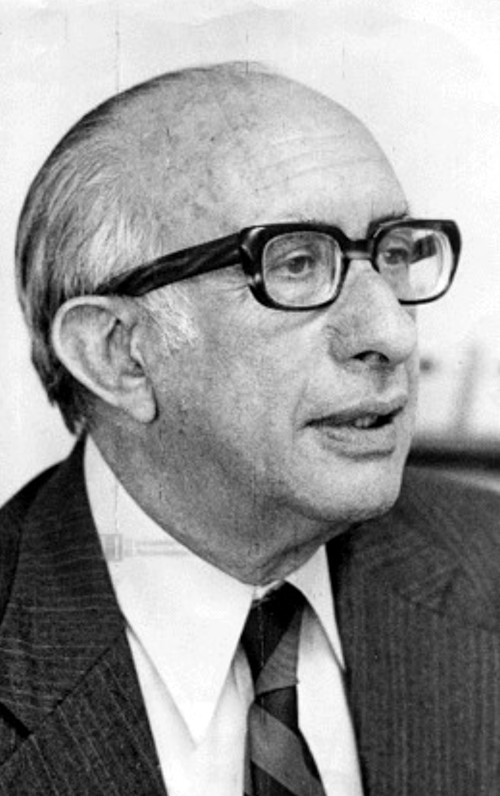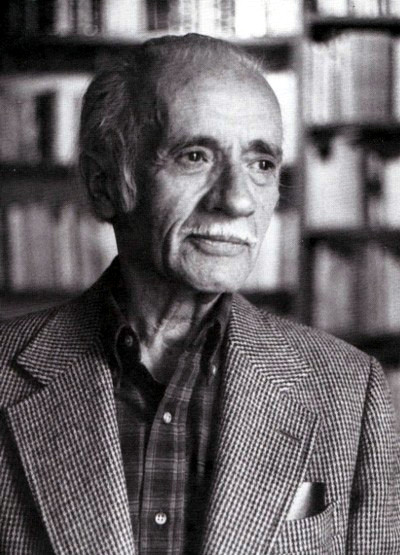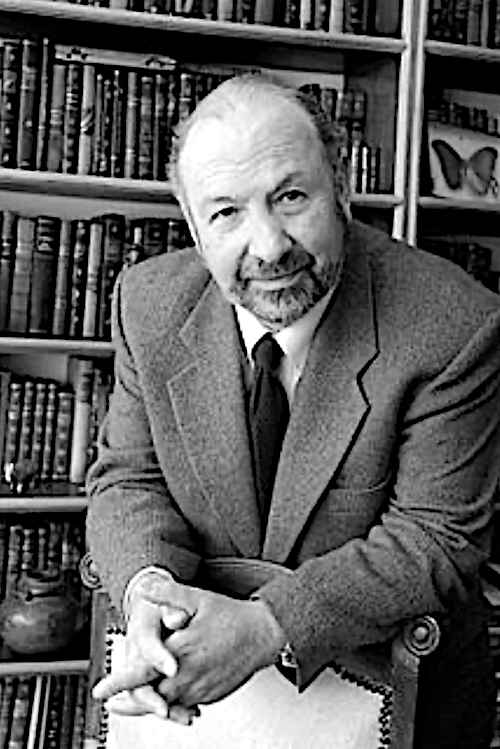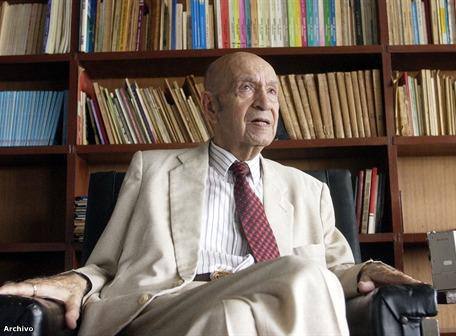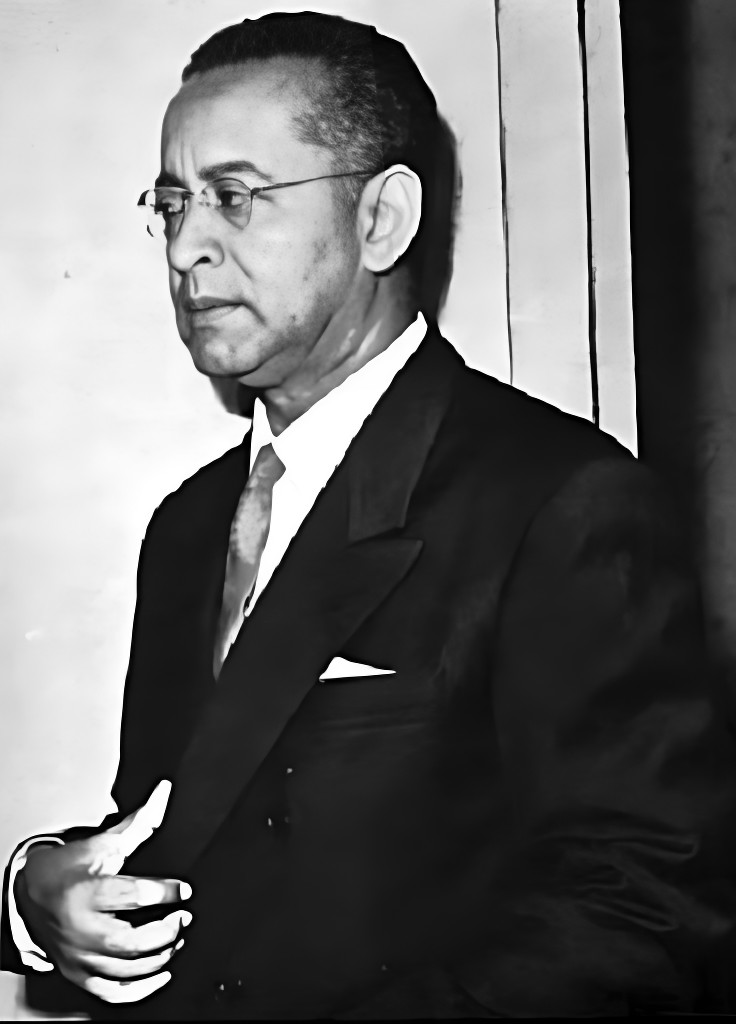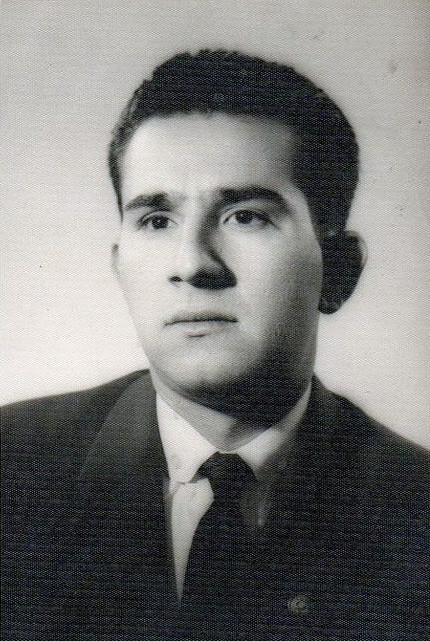Rommel Manosalvas (Quito, 1992) is an Ecuadorian author, booktuber and architect. In 2019 his short story “Disforia” was published in the anthology “Los que vendrán 20-20” by the indie publisher Cactus Pink. In 2020, he became the second “Writing World Cup” champion for his short story “Abuelita,” defeating 5400 competitors from 42 countries. An English translation of his story was published in the Yale Review in 2021. His debut novel “Anatomía transparente” was published in 2022.
Continue reading “Rommel Manosalvas”Category: Short story writers
Ana Cecilia Blum
Ana Cecilia Blum (Guayaquil, March 17, 1972) is an Ecuadorian poet, essayist, fiction writer, editor, translator and journalist. She studied political and social sciences at the Vicente Rocafuerte Secular University in Guayaquil. She earned a postgraduate degree in “Teaching Spanish as a Foreign Language” from Colorado State University (U.S.). She is the founder and editor-in-chief of the digital magazine Metaforología which publishes poetry, fiction and essays. She currently lives between Ecuador and the United States. Some of her work has been translated into English, French, Italian and Portuguese.
Continue reading “Ana Cecilia Blum”César Chávez Aguilar
César Chávez Aguilar (Tulcán, Ecuador, 1970 – November 10, 2022) was an Ecuadorian writer, bibliographer and librarian. He studied law at the Central University of Ecuador. His stories and essays were published in national and international magazines such as: Línea Imaginaria, Letras del Ecuador, and Encuentros (National Magazine of Culture). He carried out bibliographic research for the Municipality of Guayaquil and for the Benjamín Carrión Cultural Center in Quito, where he was employed as the library director. In 2012 he published “Herir la perfección,” his first book of short stories.
Continue reading “César Chávez Aguilar”Alfonso Cuesta y Cuesta
Alfonso Cuesta y Cuesta (Cuenca, Ecuador, 1912 – Mérida, Venezuela, 1991) was an Ecuadorian novelist, short story writer, poet and university professor. At the Central University of Venezuela he studied law, philosophy and literature, later earning postgraduate degrees in Santiago, Chile and Madrid, Spain. He taught high school level when he returned to Cuenca, and later became rector of the prestigious Benigno Malo School. Around this time, he became known as a writer and formed the Elán group. His first poetry book was Motivos nuestro (1930) and his first book of short stories was Llegada de todos los trenes del mundo (1932), for which he is recognized as one of the best representatives of the indigenist movement in early 20th century Ecuadorian literature. In 1940 Cuesta again left Ecuador and moved to Caracas, Venezuela to teach at the high school named Liceo Fermín Toro, from there he went on to teach at the Central University of Venezuela, he also chaired the literature department at the Faculty of Philosophy and Letters of the University of the Andes.
Continue reading “Alfonso Cuesta y Cuesta”Santiago Vizcaino
Santiago Vizcaíno Armijos (Quito, 1982) is an Ecuadorian poet, novelist and short story writer. He has a degree in Communications and Literature from the Catholic Pontifical University of Ecuador (PUCE). He has worked as an editor at the newspaper Hoy, the Office of Publications of the House of Ecuadorian Culture, and the magazine Nuestro Patrimonio (Our Patrimony). In 2008 he published his first book of poetry, Devastacíon en la tarde (translated into English by Alexis Levitin as Destruction in the Afternoon) and a book-length study of the Argentine poet Alejandra Pizarnik, both of which received awards. In 2015, La Caída Editorial published a bilingual version of his short story collection “Matar a mamá/Matricide” with the English translation by Kimrey Anna Batts. In 2017 Vizcaíno published his debut novel Complejo. His second novel Taco bajo was published in 2019. Vizcaíno is currently the Director of the PUCE Center for Publications.
Continue reading “Santiago Vizcaino”José Alfredo Llerena
José Alfredo Llerena (Guayaquil, 1912—Quito, 1977) was a distinguished Ecuadorian poet, journalist, fiction writer, art critic, and essayist. A member of the Elan literary group, he is recognized as a key figure in Ecuador’s modernist movement. His most notable work, the poetry collection “Agonía y paisaje del caballo” (1934), features 18 of his poems. In addition to poetry, he wrote the novel “Oleaje en la tierra” (1955) and the short story collection “Segunda vida de una santa” (1953). His contributions to nonfiction include “Aspectos de la fe artística” (1938) and “Ecuador, perfil de su progreso” (1960).
Continue reading “José Alfredo Llerena”Édison Gabriel Paucar
Edison Gabriel Paucar Tufiño (Quito, July 29, 1988) is an Ecuadorian novelist, short story writer and journalist. In 2012, his book of short stories Malas compañías y otros caballos de Troya won the Joaquín Gallegos Lara Prize. Paucar’s first novel Mientras llega la lluvia (2017) was a finalist of the North Texas Book Festival Award and received honorable mention at the Darío Guevara Mayorga Prize. Since 2019 he has worked as a journalist at La Hora newspaper.
Continue reading “Édison Gabriel Paucar”Miguel Antonio Chávez
Miguel Antonio Chávez Balladares (Guayaquil, June 7, 1979) is an Ecuadorian novelist and short story writer. His first short story book was Círculo vicioso para principiantes (2005). It was followed by the novel La maniobra de Heimlich (2010), the theater piece La kriptonita del Sinaí y otras piezas breves (2013), and the novel Conejo ciego en Surinam (2013). In 2007 he was a finalist for Radio France Internationale’s Juan Rulfo Prize with the story La puta madre patria. In 2011 he was named “one of the 25 best kept secrets in Latin American literature” by the Guadalajara International Book Fair.
Continue reading “Miguel Antonio Chávez”Santiago Páez
Santiago Páez Gallegos (Quito, 1958) is an Ecuadorian writer known for his novels, short stories, and science fiction works. In his youth, he traveled through the jungles of the Ecuadorian coastal region, lived in the mangroves of Esmeraldas province, and explored the highlands of the central inter-Andean region. At the age of 19, he wrote his first novel but was dissatisfied with it, leading him to stop writing for about 11 or 12 years. During his time in Madrid studying and caring for his newborn son, Páez found solace in writing science fiction stories during his sleepless nights. This experience reignited his passion for writing, prompting him to focus on fiction and pursue an academic career. After obtaining his doctorate in Madrid, he returned to Quito in 1990. Páez is currently a professor at the Pontifical Catholic University of Ecuador. Among his notable works are novels like “La reina mora” (1997), “Pirata Viejo” (2008), and “Olvido” (2010), as well as short story collections such as “Profundo en la galaxia” (1994) and “Ecuatox” (2013). Páez has received recognition for his writing, including the Joaquín Gallegos Lara Award for his short story collection “Profundo en la Galaxia” (1994) and the Darío Guevara Mayorga Award for his book “El secreto de la ocarina” (2009) and the crime novel “Retratos De Dios” (2016).
Continue reading “Santiago Páez”Alejandro Carrión Aguirre
Alejandro Carrión Aguirre (Loja, March 11, 1915 – Quito, January 4, 1992) was an Ecuadorian poet, novelist and journalist. He wrote numerous poetry books, short story books, and the novel La espina (1959). As a journalist he published many articles under the pseudonym “Juan Sin Cielo.” He was the nephew of the writer Benjamín Carrión and the naturalist Clodoveo Carrión. He was a recipient of the Maria Moors Cabot Prize (1961) from the Columbia University Graduate School of Journalism. He also was awarded the Eugenio Espejo Award (1981), Ecuador’s highest literary honor.
Continue reading “Alejandro Carrión Aguirre”Alfredo Pareja Diezcanseco
Alfredo Pareja Diezcanseco was an Ecuadorian novelist, essayist, journalist, historian and statesman. He was born in Guayaquil on October 12, 1908 and died in Quito on May 1, 1993. He was part of a literary group called the “Group of Guayaquil,” whose members utilized realism in their stories. The other members of the group were José de la Cuadra, Joaquin Gallegos Lara, Demetrio Aguilera Malta and Enrique Gil Gilbert. Among the many government posts he held throughout his lifetime, he was elected to the Constituent Assembly in 1944 and was made Minister of Foreign Affairs in 1979. In 1979 he was awarded the Eugenio Espejo Award, the most important literary prize in Ecuador.
Continue reading “Alfredo Pareja Diezcanseco”Francisco Tobar García
Francisco Tobar García (Quito, November 3, 1928 – Quito, February 1, 1997) was an Ecuadorian poet, playwright, novelist, essayist, journalist, literary critic, diplomat, and university professor. He earned a Ph.D. in Literature from the Pontifical Catholic University of Ecuador and held teaching positions at universities such as La Plata in Argentina, the Sorbonne in Paris, and Complutense in Madrid. He revitalized Ecuadorian theater with his plays and published several notable works of poetry and fiction, including Pares o nones and Autobiografía admirable de mi tía Eduviges, which critics consider his masterpiece. He also served as a diplomat in Spain, Haiti, and Venezuela.
Continue reading “Francisco Tobar García”Ángel Felicísimo Rojas
Ángel Felicísimo Rojas (Loja, December 20, 1909 – Guayaquil, July 20, 2003) was an Ecuadorian novelist and short story writer. His best known novel is El éxodo de Yangana (1949), which is one of Ecuador’s most important books. In 1948 Rojas published an influential book entitled The Ecuadorian Novel, which set the tone for literary criticism in the country for future decades. Rojas founded the Socialist Party of Loja in 1927. He was a passionate supporter of socialism, which led to his arrest and imprisonment by the Ecuadorian government in 1941. In 1997 Rojas was awarded the Eugenio Espejo Award in Literature.
Continue reading “Ángel Felicísimo Rojas”Adalberto Ortiz
Adalberto Ortiz Quiñones (Esmeraldas, February 9, 1914 – Guayaquil, February 1, 2003) was an Afro-Ecuadorian novelist, short story writer, poet, professor and diplomat. Among his most important books are: Juyungo (1942, novel; English translation by Susan Hill and Jonathan Tittler, 1983); Earth, Sound and Drum (1953, poetry); Entundada (1971, short story). His most defining feature as a writer was the incorporation of the elements of afro-Ecuadorian culture, enriching his literary vocabulary with its jargon, its elasticity and its rhythm. In 1995 Ortiz was awarded the Eugenio Espejo Prize, Ecuador’s most important literary award.
Continue reading “Adalberto Ortiz”Luis Félix López
Luis Ramón Félix López (Calceta, August 25, 1932 – Guayaquil, December 17, 2008) was an Ecuadorian doctor and politician, as well as an award-winning novelist, short story writer and poet. He held many senior government posts during his lifetime and served two terms as president of the Guayas branch of the House of Ecuadorian Culture. His 1973 novel “Los designios,” was finalist for that year’s International Novel Award (Mexico), and his 1996 novel “La noche de rebaño,” won the Joaquín Gallegos Lara Prize. He also published several short story books and a collection of poetry.
Continue reading “Luis Félix López”

